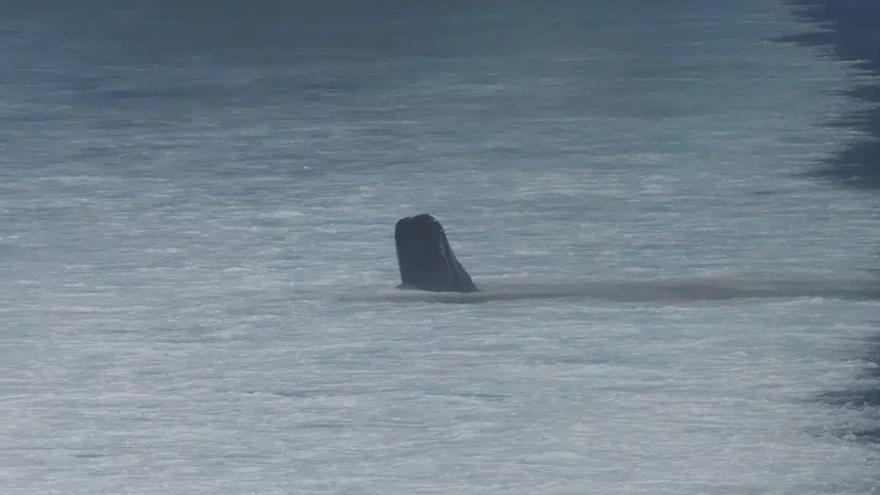
in a tragic event happened yesterday afternoon, an adult sperm whale collided with a fast ferry from the renowned shipping company. The incident took place during the route between the ports of Agaete and Santa Cruz de Tenerife.
The biologist Amanhuy Duque Hernández, who was on board the ferry, was the first to report the incident through social networks. Duque recounted his experience as a passenger, mentioning that he was photographing various birds and cetaceans, including a sperm whale some 200 meters from the ship, when he felt a strong blow. Turning around, he saw a brown stain of blood in the ferry’s wake and another adult sperm whale flailing in pain on the surface of the water. Immediately, he provided the exact location of the collision to those in charge of the search for the body and its subsequent investigation and autopsy.
Canary Islands has become the epicenter of sperm whale collisions, being the only known breeding population in the Northeast Atlantic. In the last two decades, more than 80 collisions between cetaceans and boats have been recorded in the archipelago. In recent years, there has been a worrying increase in these incidents, coinciding with the introduction of new fast ferry routes and the increase in frequencies.
Amanhuy Duke expressed his disappointment by stating that “not only the shipping company is to blame, but also the Government of the Canary Islands, which continues without regulating the speed of the ships. Cetaceans do not have time to react and avoid collision”. His words highlight the urgent need to take action to protect these magnificent marine creatures.
According to data from Government of the Canary Islands, sperm whales represent 54% of cetacean species that are stranded on the Islands after a collision. A study conducted by the Institute of Animal Health of the University of Las Palmas revealed that in 80% of the cases, the cetaceans involved in the collisions were still alive.

















There is a technology called whale safe that was designed to try and avoid whale / boat collisions